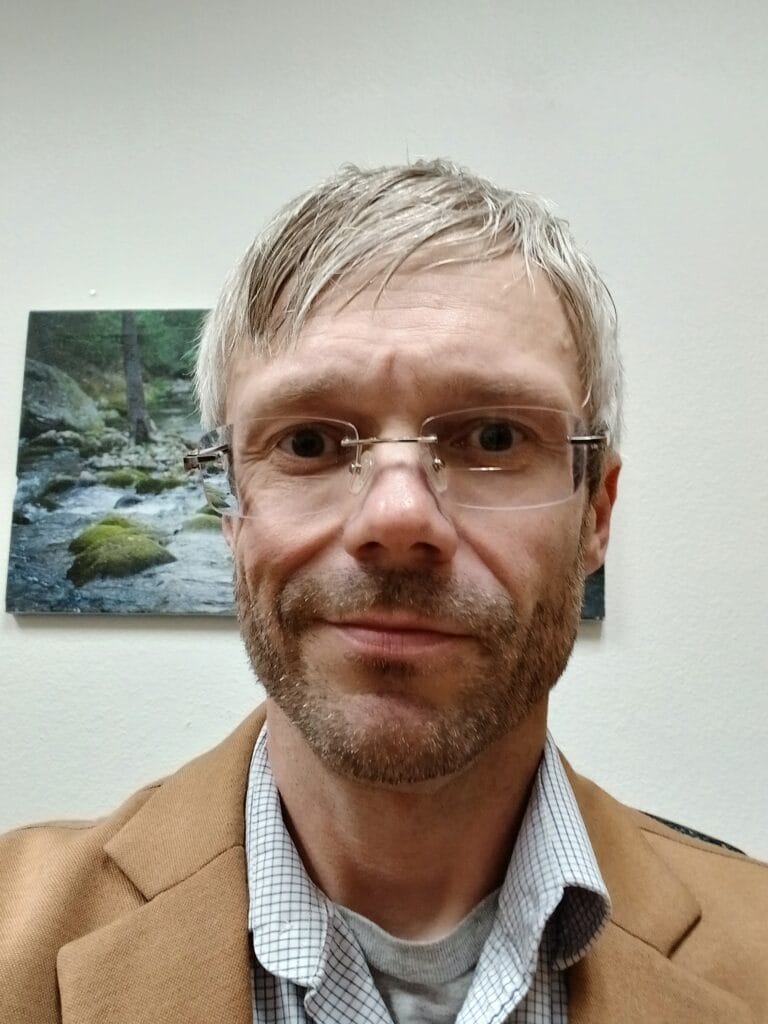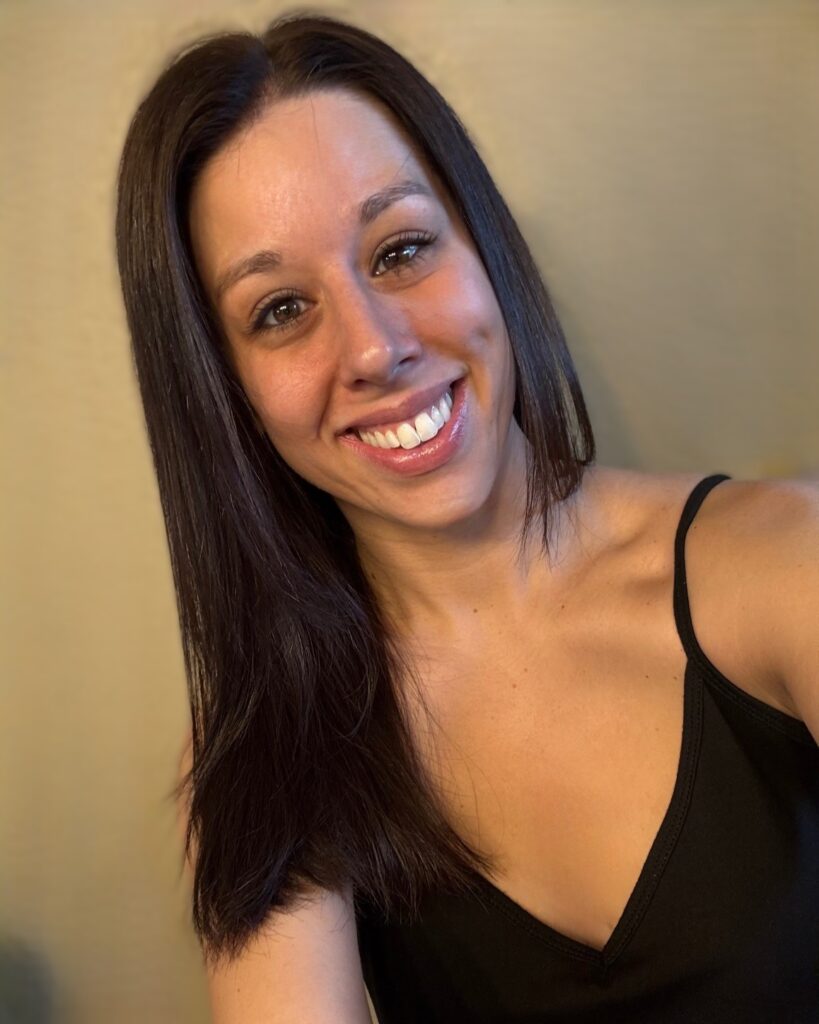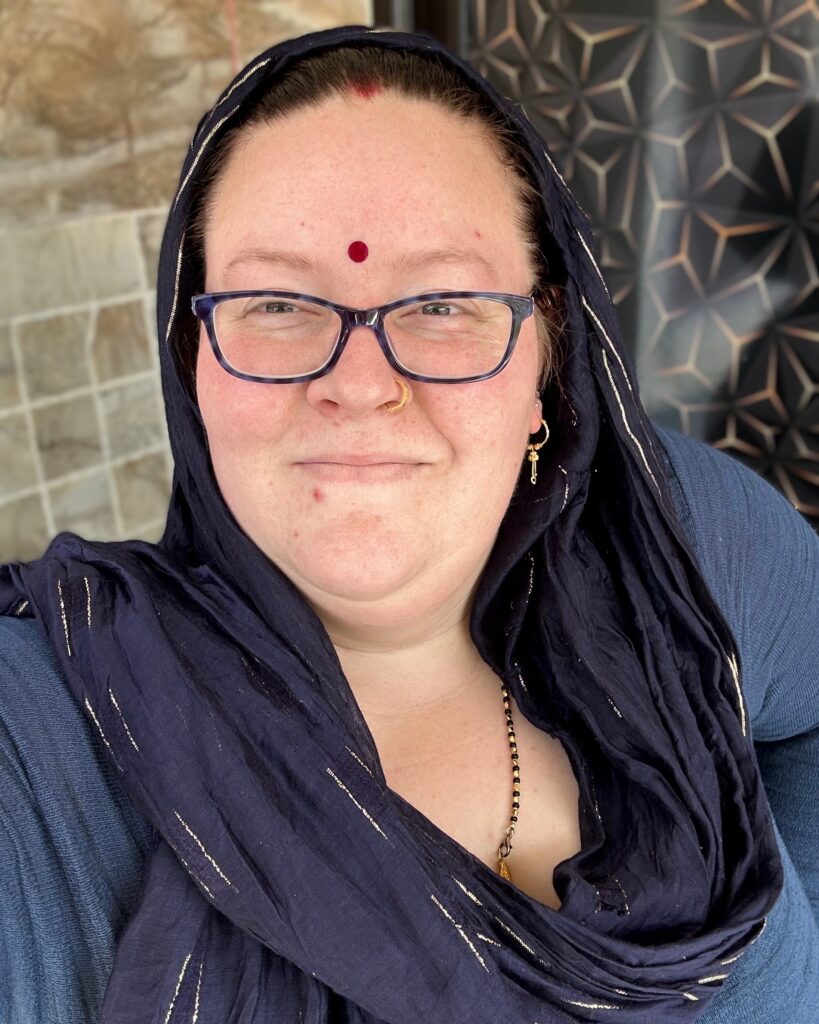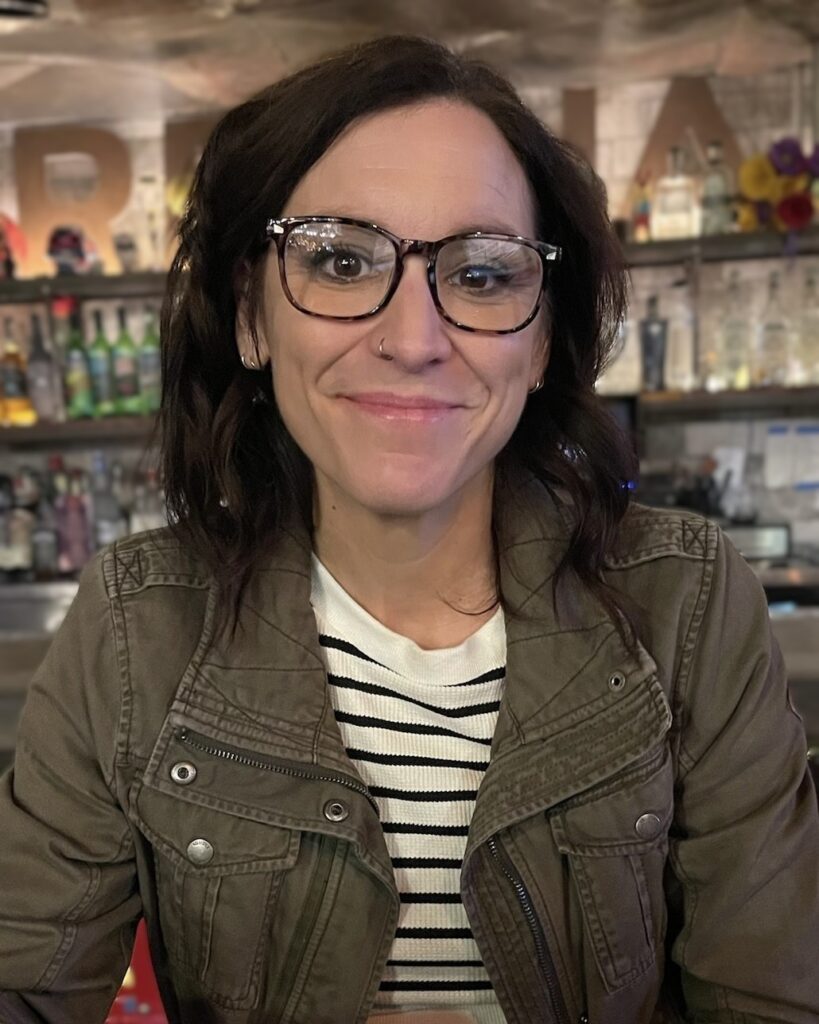Macey Sidlasky
Double Helixes
Macey Sidlaskey
Double Helixes
I imagine how my father saw me: a three-pound, nine-ounce baby, whose fingers curled around the oxygen tube in my nose, bottoms of my feet wrinkled and translucent and small. I wonder if he counted the number of IVs and electrodes glued to my skin as I wailed.
I’d like to think he leaned against the glass of the NICU and bowed his head to pray. Maybe he even whispered my name and splayed his palm against the window, trying to reach for my hand as it thrashed against the tubes surrounding me, keeping time with the beeping of my oxygen and heart-rate monitors. Maybe he repeated my name and begged for me to push through, like the other fathers standing next to him did, their own hands pressed in tight fists to their lips, trying to suppress tears.
But maybe he did none of these things. Maybe he looked at me and simply decided I couldn’t be his. Maybe I was too small, too fragile for his life. Maybe he just didn’t want me.
I wonder exactly when my father decided it would be a good idea to request a paternity test, and I wonder if he watched through the glass as nurses held my feet in their gloved hands, drawing vial after vial of blood from between my toes as I cried and begged for them—for him—to stop.
*
My mother and father met in 1994. I don’t know the specifics of where, or the details of what date or month, but my father must have been drawn to my mother instantly. She said he claimed it was because of her smile. It’s one of the only things she’s ever told me about their relationship.
I know my mother worked with my father’s wife: they were both assistants for Dr. Smith, one of the only dentists in our small hometown of Olyphant, Pennsylvania. My father’s wife didn’t know about the affair, not until after I was born, not until the paternity test came back positive. It was only then my father told her. She filed for divorce shortly after.
Sometimes, when I think about my mother, young, twenty-five, working her way through dental school, I picture her and my father’s wife leaning over a patient, sickle probes and syringes in an open mouth, their beige scrubs dotted with water and spittle, and I wonder if my mother ever got the urge to tell my father’s wife. She had to know they were married—his wife’s wedding and engagement rings must have stretched the latex of her seafoam green glove as she worked in patients’ mouths. My mother had to have noticed them.
And then I wonder if my father ever took his ring off. If he and my mother snuck into hotels, or met down the street near Mid-Valley High School and kissed in the back of his state trooper vehicle, did he always wear it? Did my mother feel it digging into her skin when she pulled him toward her? And if he pressed his hand to the glass of the NICU, did the golden band clink against the window? Was I able to hear it?
*
My mother was married and divorced before she met my father, to her high school sweetheart, Joe. Joe was kind, with green eyes and carpenter’s hands that were callused and worn from designing custom cabinets and personalized bedroom sets in the Scranton area.
I first met Joe when I was twenty-four at his niece’s wedding. My mother, his niece’s godmother, was invited and although I dreaded their reunion, my mother looked forward to it.
At the wedding, I couldn’t help but notice how Joe was balding, his alcoholism catching up to him, stomach round and ballooning. He did not hug me when my mother introduced us. Instead, he stuck out his hand and took my palm in his, fingers bulbous and rough against mine. Joe looked me up and down, smiled, and muttered something about looking like my mother when he let go. I tucked a stray curl behind my ear and wondered if he ever imagined if I could, in another universe, also look like him.
*
The only photograph I have of my father and me is of him leaning over my mother and I a few days after I was born. In it, his blue scrubs are wrinkled, his dark hair slicked back. He isn’t facing the camera. From this angle, I can tell we share the same slope of a nose, the same high forehead. From the pull of his lips, I can also tell we share a similar smile, the one that makes our eyes crinkle at the sides, deep laugh lines settling into our cheeks.
When I first found this photograph I was seven or eight, stumbling across it in one of my grandmother’s photo albums. I didn’t know it was of my father. I thought he was a nurse. I imagine he must have felt like a nurse, like he had no real connection to me or my mother, and maybe the way we are posed in the photograph is some larger metaphor or indication of how our story would play out: my mother holding me close to her chest, my father leaning next to us, eyes downcast, watching. Not involved but still somehow there.
I try not to notice how his hands aren’t touching me or my mother in the photo, how one hand hovers around my mother’s left shoulder, the other tucked by his side, fingers pressed against his thigh. When I notice his hands, how he refuses to touch me, I wish I could continue pretending he was just a nurse.
*
I once told a boyfriend I am the child of an affair. We sat on my couch, the TV muted, and I hated how the words sounded, coming from my mouth, as if dipped in shame, as if I should apologize for existing on behalf of my parent’s choices. The phrase flushed through my veins like acid and I swallowed, awaiting a response.
My boyfriend chuckled.
“That’s hot,” he said, smirking, blue eyes glinting in the TV screen light. He leaned in to kiss me, hand cupped to my cheek.
I imagined breaking up with him right then and there, but then he actually kissed me, and I forgot I should feel disgusted by him, by the thought of him being okay with an affair, especially when the word made me feel so dirty. I imagined pulling away from him and trying to explain how knowing I was an affair child made me feel as if the DNA running through my veins was wrong. I wanted to explain how the double helixes of my molecules were of the worst atoms of my parents, and they combined to create me, and I wanted to ask if that made him love me less or worried him, because what if their decision to have an affair was engraved in me? What if I was predisposed to be exactly like them?
I could cheat on him. It was written in my DNA. Didn’t the idea of an affair scare him as much as it scared me?
*
Joe called to apologize to my mother during AA as part of his twelve steps. It was my grandmother who answered the phone, and even though I sat at the kitchen counter doing calculus homework, I could hear his voice, muffled, on the other side of the line as he cried to my grandmother: “Please let me talk to her, Mrs. Sid,” he said. My grandma asked if Stacey, his new wife, was okay with this.
“Just let me talk to Tracey,” Joe begged, and my grandmother passed the phone to my mother. My mother forgave him, but halfway through the conversation, she paused, a hint of a smile on her lips, and asked, “Hey, Joe, just out of curiosity, do you ever call Stacey Tracey?”
*
The only thing I have from my father is a snow globe. It’s Winnie the Pooh themed, with Tigger and Piglet and Pooh riding in a boat down a river, blue umbrellas perched over their heads. It plays the Winnie the Pooh theme song and rains glitter when shaken, and when turned upside down, there is a gold plaque on the bottom that reads: Happy First Birthday, Macey. Love, Daddy. I didn’t realize it was engraved until I was packing for college. For years, I never even knew it was from him.
As I traced the line of the name “Daddy,” I wondered if my father was ever excited about being a father. When my mother told him she was pregnant, did he bounce on the balls of his feet in excitement, like the way Tigger was perched permanently in that snow globe, or did he hug my mother tightly, squeezing her and pressing kisses to her stomach before it swelled? Did excitement flutter through his own stomach, like the glitter raining down on Pooh and Piglet, settling at the bottom of his abdomen, only to clump and gather into a knot when he realized he would have to tell his wife?
*
The boyfriend of mine who said being the child of an affair was hot was stationed abroad for two years, and one chilly December night, I missed his daily phone call while out dancing with my best friend. She and I tossed back tequila shot after tequila shot and hung onto one another as the bass in a club drowned out the buzzing of my cellphone that was stuffed in the side of my bra. I could not hear him call. Or maybe I didn’t want to hear him call.
Maybe I wanted to ignore the fact that he was calling as a tall man approached me and slid his hand into the back pocket of my jeans, pulling me flush into him so we could dance, the tequila drumming through me like the music’s base. Maybe I wanted to imagine what my mother once found so appealing about an affair. Maybe I wanted to understand her. Maybe I was drunk.
But as the man leaned in for a kiss, I stepped back and pushed my hair out of my sweaty face. “I have a boyfriend,” I said.
The man smiled, “He doesn’t have to know.” The strobe lights of the club flickered across his face and I saw it: the temptation, the ease. I imagined my father saying some version of this to my mother, his topaz eyes flashing in a darkened room, the right side of his mouth pulled up into a sly smirk.
But then what if it was my mother saying some version of this to my father? She bats her lashes at him and reaches up to cup a hand around the back of his neck, fingers intertwining themselves in his hair. It’s just one kiss. No one would have to know.
I took another step back from the tall man at the club. I didn’t want to be with a man who was like my father. But even more so, I didn’t want to be like my mother.
*
When Joe died, my mother’s ex-sister-in-law called us. The cancer had spread from Joe’s liver to his brain, and when my mother hung up, I watched her shoulders shake with sobs.
“It should have been us,” my mother said, “It should have been him.”
I wanted to ask my mother if she regretted not staying with Joe, even though I knew the answer was yes, just by the way her shoulders trembled, softly, tenderly. I wanted to comfort her, to say something, but the words got stuck in my throat because if she wanted to be with Joe, I wouldn’t exist. My tarnished DNA would not be my own. I would not be me. Or maybe I would be me, a me with a father, with normal double helixes. Me with Joe as a parent who loved my mother, with Joe who wanted to be a parent.
I stood by my mother’s side, hovering, and wondered if I should be crying too—crying for my mother’s loss, or what could have been my own, I wasn’t sure.
Either way, I placed a hand on my mother’s shoulder and squeezed, muttering I’m sorry over and over again, trying to ignore how I wondered if my father would hear about Joe’s passing through Olyphant’s small town and if he’d ever thought about anything he’d lost.
*
My father has been engaged twice since his wife divorced him because of the affair. My grandfather saw his first engagement announcement in the Olyphant newspaper, only two days after he told my grandfather he felt like too much of a babysitter and didn’t want to be my dad anymore. I found out about the second fiancée when he friend-requested me on Facebook when I was seventeen.
My mother did not date after him. I wonder how this is fair. I wonder if he sees my mother in all of his partners, her deep brown eyes or the slender curve of her smile. I also wonder if he ever thinks of me, if he tells his partners he has a child, somewhere in Florida, but he doesn’t know where exactly. But he knows I’m in graduate school and he has seen me on social media, which is the only way he knows we look alike.
I wonder if my father has told his fiancées about how he signed his name on the bottom of a Lackawanna County court form, indicating that he was voluntarily giving up his paternal rights. I hope when he tells his fiancées, they decide to call off the engagement.
Sometimes, when I trace his name on the back of the Winnie the Pooh snow globe, I imagine him signing the court form as Daddy for one last time.
*
I’ve written about my father before, about his absence, about how the image of him walking out our Pennsylvanian front door is not a memory, but something I have imagined and revised over the years. I was too young—two—to actually remember the day he left. In my imagined version, he wears scuffed brown shoes as he leaves. He carries a briefcase—not a suitcase. His dark hair is slicked back, like how it was styled in the only photograph I have of him. I don’t cry when the door shuts behind him.
When I told that same boyfriend about how I have conjured this image in my mind and replayed it over and over again, he asked me if I wanted to meet my father. I told him no. He said he would reach out to go see him, to go talk to him, to get answers.
“I don’t want to see him,” I said.
“Then I’ll go meet him,” he said. A curl of brown locks fell into his eye. I almost forgave him then, forgave him for pushing, for asking questions, for being willing to be braver than I would or could ever be.
“No, I don’t want to see him.”
“But if I see him—”
I stood up and walked through the doorframe of the living room, shoulder hitting the wall as I exited and left my boyfriend sitting on the couch, alone. He called after me, but I didn’t look back. Later that evening, I revised the image of my father leaving: I call out to him. He walks through the doorframe. He doesn’t look back.
*
Sometimes, when I imagine being a parent, I worry my children will feel unloved. I am scared that if they are unplanned—a surprise pregnancy that finds itself in the midst of me starting a career—that they will feel unwanted.
I wonder if my mother wanted me. I wonder if my father did too, somewhere in the back of his mind. I wonder if it is okay that when I look at my mother, I sometimes call her a homewrecker, and when I imagine my father proposing to yet another partner, I call him a man whore. I wonder what DNA of theirs my children will get, if my future husband’s good DNA will outweigh my tarnished molecules. I want to tell my future children I love them, no matter what, even if their double helixes are lined with the DNA of an affair. I want to tell them that nurture overpowers nature, and I want to tell them this over and over again until I believe it myself.
*
I imagine how my father saw my mother for the first time: she attends Dr. Smith’s annual Christmas party in a slim-fitting red dress, her long, dark hair pulled back from her face. She is recently divorced from her high school sweetheart and this new-found freedom looks good on her, like she is glowing, the curve of her smile welcoming. My father sees her from across the room and even though he has attended the party with his wife on his arm, he cannot help but be drawn to my mother and the way she skirts around the edge of the crowded dining room, hands pressed to arms as she greets people she knows and slides by those she doesn’t.
I imagine my father believes in love at first sight in this instant. I imagine he doesn’t plan this, that their affair isn’t an affair based solely on lust, that when he and my mother reach for the same hors d’oeuvre—a crab cake from the buffet line—his hand brushes hers and he forgets how he promised another woman forever because all he can see is forever in my mother.
I imagine this is how it is supposed to be. My father and mother, grinning as he offers her the last crab cake on the silver-lined buffet tray. I imagine her calling him a gentleman but splitting the crab cake in half, handing the larger piece to him. I imagine they don’t think of me in this instant, of how I will one day come into existence and change their lives, and the lives of others.
My father’s hands linger on my mother for a moment. No one at the party seems to notice.
Macey Sidlasky graduated from USF with her MFA in Creative Nonfiction in 2020. She currently teaches English 3 Honors and Creative Writing 1, 2, and 3 at Dr. Kiran C. Patel High School in Tampa, FL. When she is not reading, writing, or lesson planning, chances are you may find her reading, writing, or lesson planning.



